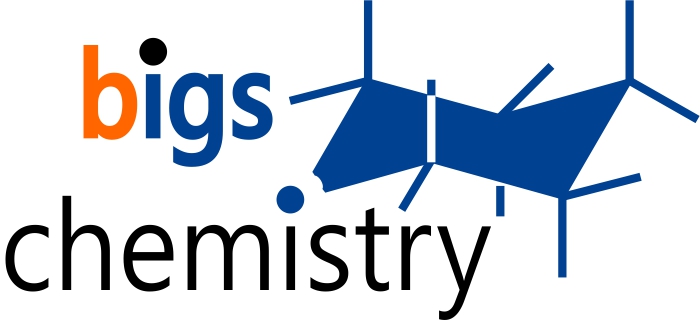Bonn International Graduate School of Chemistry (BIGS-Chemistry)
BIGS-Chemistry offers an internationally competitive Graduate Program that is designed for outstanding students who are eager to obtain a Ph.D. in Chemistry while performing cutting-edge research. Intense hands-on training in experiment and theory combined with early-on individual research creates a stimulating academic setting where students can develop into independent, creative, and successful scientists in all fields of Chemistry.
Research Program of BIGS-Chemistry
Research in the Graduate School is directed along two major axes: the chemistry of spin centers and the chemistry of non-covalent interactions. In particular, BIGS-Chemistry strives to understand the unique chemical and physical properties of molecules with unpaired electrons and to utilize them as building blocks for novel materials and functional systems. To this end, state-of-the-art experimental and theoretical tools are being developed to probe the molecular and electronic structure of such spin centers and to explore their extraordinary reactivity and dynamics. Individual molecules are being assembled into larger functional units (scaffolds and networks) through the targeted integration of non-covalent interactions between the individual molecular constituents. The International Graduate School makes every effort in developing a sustainable, environmentally friendly, and resource-saving Chemistry.
The academic profile of the faculty engaged in BIGS-Chemistry covers the following areas:
Inorganic Chemistry: Catalysis, Coordination Chemistry, Electron Microscopy, Main-Group Elements, Nano Materials, Organometallic Chemistry, Solid-State Chemistry, and Transition-metal Chemistry
Organic Chemistry and Biochemistry: Natural Products, Catalysis and Sustainable Chemistry, New Methodologies in Synthesis, Organic Materials, Polymer Chemistry, Supramolecular Chemistry, and Sensors
Physical and Theoretical Chemistry: Single-Molecule Spectroscopy and Microscopy, Multi-Frequency Pulsed Electron Paramagnetic Resonance, Ultrafast Multidimensional Laser Spectroscopy, Laser Chemistry, Biophysics, Ab Initio Quantum Chemistry, Density Functional Theory, Molecular Dynamics Simulations, Dynamics in Liquids, Quantum-Chemical Modeling of Solids and Surfaces, Organic Thin Films and Semiconductors
Curriculum and Mentoring
The Curriculum at BIGS-Chemistry entails a M.Sc. program and a subsequent Ph.D. program. Students can enter the Graduate School at both levels depending upon the level of their previous academic training. M.Sc. and Ph.D. students choose two supervisors from the Chemistry department’s faculty. While the research is conducted in the laboratories of the principal mentor, the dual mentorship principle serves to enhance the interdisciplinary character of the scientific education.
At BIGS-Chemistry, it takes about two years to obtain a M.Sc. degree. First-year students are required to pass compulsory coursework during the first semester and elective laboratory work during the second semester. The third and fourth semesters are taken up primarily by the research phase, during which the students join the research group of their principal mentor to work on their M. Sc. thesis.
Ph.D. students are closely embedded into their principal mentor’s research group and are devoted almost exclusively to their own research. In parallel, to sharpen their academic profile, they conduct a week-long lab internship in another research group of the department, and they choose an optional pair of advanced method courses focusing for two days on a particular experimental and/or theoretical technique. In addition, the students are expected to regularly attend one of the many series of colloquia that are offered by the Chemistry department. Ph.D. students are further encouraged to present their research to a broader audience, e.g. on international conferences. For a detailed list of duties please click here.
Funding and support
BIGS-Chemistry offers access to funding and is continuously pursuing additional funding opportunities. Usually, Ph.D. students are paid from funds available to the research group of the principal mentor. Travel funds for conference visits can be provided by the principal mentor during the dissertation phase or from BIGS-Chemistry.
Internationality
The teaching program is conducted in English and thus, international students are particularly encouraged to apply to BIGS-Chemistry. The faculty members of the Graduate School are engaged in numerous collaborations with their scientific colleagues from around the world. Ph.D. students from our international partners frequently visit the Chemistry department where they are granted full access to all events related to the Graduate school. Likewise, Ph.D. students from BIGS-Chemistry have ample opportunities for short-term visits to the partner laboratories. Interested candidates need to contact their principal mentor for all aspects related to the organization and funding of the visit. Particularly close ties exist with the Chemistry departments of the University of St. Andrews (United Kingdom) and the University of Strasbourg (France) through jointly organized and regularly held scientific colloquia on topics pertaining to the Chemistry of Spin Centers.
